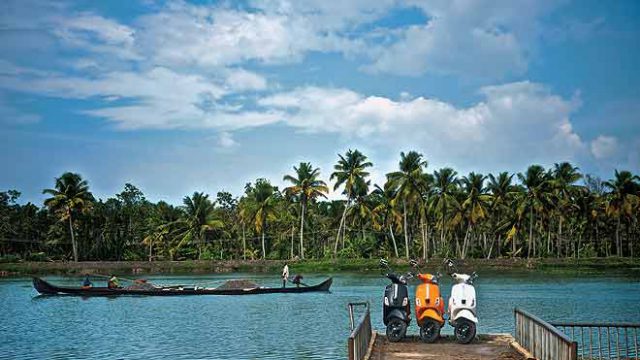You know a name has become a brand when it transcends the noun to become an adjective or a verb. ‘Vespare’ is a verb in modern Italian; it means to go somewhere on a Vespa scooter. Going around on a Vespa is an urban cult. Audrey Hepburn and Gregory Peck did it in the 1953 classic Roman Holiday. The British teenage cult of the mods in the ’60s rode on Vespa scooters.
There was no way this could have escaped the iconic mod band The Who. Their second rock opera album Quadrophenia — the first was Tommy — features Jimmy, a young mod with his hair cut neat, sporting a zoot suit with side vents, and a Vespa GS scooter. In India, Vespa’s technology was franchised to Bajaj (becoming Hamara Bajaj) and later to LML. Bajaj gave up on the scooter several years ago, and the partnership with LML ended in 1999.
The 1990s was a troubled time. Piaggio, the company that has owned Vespa, got sold off. The new owners decided to stick with the brand and the core values that had created the cult of the Vespa in 1940s: easy to ride, good for men and women, carries a passenger, and does not get the driver’s clothes dirty. It’s been a successful turnaround for the Italian company; even the notorious Italian workers’ unions have been kept happy.
Two years ago, Vespa made its third entry into India, this time in its own name. The Vespa and its variant VX were launched. The latest offering is the sportingly-tweaked Vespa S — and I’m here in Kumarakom to try it out. I don’t want a passenger, but am decided on not getting my clothes dirty.
The rise of the scooter is down to post-war Italy, when the roads were bombed out of shape and the narrow roads of old Italian cities needed something with small wheels that could dart around in little space — vespa means wasp in Italian. Indian roads can give a stiff competition to post-war Italy, which is why scooters make so much sense here. Small roads, bad roads, disorganised traffic, parking nightmares. Which explains the resurgence of Japanese scooters in the Indian two-wheeler market over the past decade or so.
The only thing is: scooters were uncool. That is, till Vespa re-entered. For who knows more about cool than the Italians? The country that made Ferrari and Ducati and Aprilia (also a Piaggio brand now along with Moto Guzzi) is also the one that made scooters cool. And it’s only justified that the event to highlight the Vespa VX is happening in Kerala, at the Kumarakom Lake Resort near Kochi. In 1440, Niccolo de Conti landed at Kochi, becoming the first European in the Middle Ages to come to India and then return home.
Used to motorcycles, I find the Vespa S really light. On the roads around the backwaters, it eases along the road. With automatic gears and an ergonomic riding position, I can let go of the complexities of riding a two-wheeler — and concentrate on the scenery that has earned Kerala the pride of tourism clichés. While riding, I used one hand for taking pictures, lighting cigarettes and talking on the mobile phone (this was a test ride, so I needed to take things to a limit, so please cut me some slack before you judge me on public safety).
The ride was pleasant and uneventful. Which is what the Vespa is about. But then what about the testing? So I took the scooter for a spin in the traffic of old Kochi. That was not so uneventful. If you ride a brightly-coloured Vespa in a city, there is no way to avoid attention. You become the event.
I weaved through the lanes and through the traffic with minimum fuss and maximum effectiveness. Isn’t that what the promise of urbanity is about? To be able to get the most out of very little? Look around you, and you will realise that the scooter is not uncool any more.
It is not the vehicle of the old and the practical, who want to carry groceries and children in the step-through frame. You will see men and women, young and cool, sport a new urban charm in bright Vespas. The company has a new tagline to sell this new cool: Do you Vespa? The Italian verb vespare is coming to Indian English now.
Just the other day I caught a glimpse of the 2013 comedy Phata Poster, Nikla Hero, starring Shahid Kapoor. It has a road chase sequence with Shahid and Ileana D’Cruz riding a bright red Vespa. The image of Amitabh Bachchan riding a motorcycle in Muqaddar Ka Sikandar is so yesterday. The protagonist on the scooter is doing much better than the protagonists on motorcycles.




